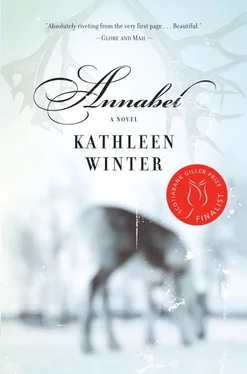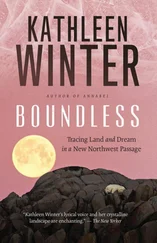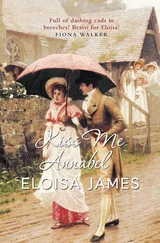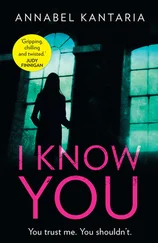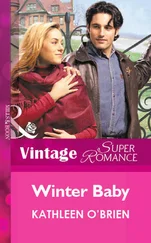Annabel, Annabel, where did you go? I’ve looked high and I’ve looked low.
I’ve looked low and I’ve looked high…
— Kat Goldman
Different though the sexes are, they inter-mix.
In every human being a vacillation from one sex to the other takes place, and often it is only the clothes that keep the male or female likeness, while underneath the sex is the very opposite of what it is above.
— Virginia Woolf
“PAPA!”
The blind man in the canoe is dreaming.
Why would a white caribou come down to Beaver River, where the woodland herd lives? Why would she leave the Arctic tundra, where light blazes incandescent, to haunt these shadows? Why would any caribou leave her herd to walk, solitary, thousands of miles? The herd is comfort. The herd is a fabric you can’t cut or tear, passing over the land. If you could see the herd from the sky, if you were a falcon or a king eider, it would appear like softly floating gauze over the face of the snow, no more substantial than a cloud. “We are soft,” the herd whispers. “We have no top teeth. We do not tear flesh. We do not tear at any part of life. We are gentleness itself. Why would any of us break from the herd? Break, apart, separate, these are hard words. The only reason any of us would become one, and not part of the herd, is if she were lost.”
The canoe, floating in a steady pool at the deep middle, has black, calm water around it, with froth floating on top from the foam around and above and below. The white caribou stands still, in a patch of sunlight between black tree trunks, staring at the man and the girl inside the vessel. The moss beneath the caribou’s hooves is white and appears made of the same substance as the animal, whose outlines are barely there, considering the light above and below it. It could have been poured from light itself and made of light, as if Graham Montague and his daughter had dreamed it into being.
“Papa?” Annabel stands up in the boat. She has been told, from the time before she could walk, not to do this, but she does it. For a moment the canoe stays still, then the girl outstretches her arms towards the enchantment, this caribou that now, she sees, wears a mantle of glittering frost around its shoulders and magnificent chest. In fact there are sparkles of frost throughout its white coat, and she cannot believe her father is both blind and asleep. She cannot believe life would be so unfair that a man could miss such a sight, and she stretches out her hands, which are long, and which her father has loved, and for whose practical industry and fruition he has laboured and hoped, and the canoe capsizes in the river’s calm, deep heart. It flips easily, in an instant. The gun goes down, the provisions float or go down according to their lightness and the waterfastness of their packaging.
Graham Montague has never had to swim, and he does not know how, and neither does Annabel, his daughter.
WAYNE BLAKE WAS BORN at the beginning of March, during the first signs of spring breakup of the ice — a time of great importance to Labradorians who hunted ducks for food — and he was born, like most children in that place in 1968, surrounded by women his mother had known all her married life: Joan Martin, Eliza Goudie, and Thomasina Baikie. Women who knew how to ice-fish and sew caribou hide moccasins and stack wood in a pile that would not fall down in the months when their husbands walked the traplines. Women who would know, during any normal birth, exactly what was required.
The village of Croyden Harbour, on the southeast Labrador coast, has that magnetic earth all Labrador shares. You sense a striation, a pulse, as the land drinks light and emits a vibration. Sometimes you can see it with your naked eye, stripes of light coming off the land. Not every traveller senses it, but those who do keep looking for it in other places, and they find it nowhere but desert and mesa. A traveller can come from New York and feel it. Explorers, teachers, people who know good hot coffee and densely printed newspapers but who want something more fundamental, an injection of New World in their blood. Real New World, not a myth that has led to highways and more highways and the low, radioactive buildings that offer pancakes and hamburgers and gasoline on those highways. A traveller can come to Labrador and feel its magnetic energy or not feel it. There has to be a question in the person. The visitor has to be an open circuit, available to the power coming off the land, and not everybody is. And it is the same with a person born in Labrador. Some know, from birth, that their homeland has a respiratory system, that it pulls energy from rock and mountain and water and gravitational activity beyond earth, and that it breathes energy in return. And others don’t know it.
Wayne was born, in bathwater, in the house of his parents, Treadway and Jacinta Blake. Treadway belonged to Labrador but Jacinta did not. Treadway had kept the traplines of his father and he was magnetized to the rocks, whereas Jacinta had come from St. John’s when she was eighteen to teach in the little school in Croydon Harbour, because she thought, before she met Treadway, that it would be an adventure, and that it would enable her to teach in a St. John’s school once she had three or four years of experience behind her.
“I would eat a lunch of bread and jam every day,” Joan Martin told Eliza and Thomasina as Jacinta went through her fiercest labour pains in the bathtub. Every woman in Croydon Harbour spoke at one time or another of how she might enjoy living on her own. The women indulged in this dream when their husbands had been home from their traplines too long. “I would not need any supper except a couple of boiled eggs, and I’d read a magazine in bed every single night.”
“I’d wear the same clothes for a week,” Eliza said. “My blue wool pants and grey shirt with my nightie stuffed under them. I would never take off my nightie from September till June. And I would get a cat instead of our dogs, and I would save up for a piano.”
The women did not wish away their husbands out of animosity — it was just that the unendurable winters were all about hauling wood and saving every last piece of marrow and longing for the intimacy they imagined would exist when their husbands came home, all the while knowing the intimacy would always be imaginary. Then came brief blasts of summer, when fireweed and pitcher plants and bog sundews burst open and gave the air one puff, one tantalizing scented breath that signalled life could now begin, but it did not begin. The plants were carnivorous. That moment of summer contained desire and fruition and death all in one ravenous gulp, and the women did not jump in. They waited for the moment of summer to expand around them, to expand enough to contain women’s lives, and it never did.
When Jacinta was not groaning with the mind-stopping agony of having her pelvic bones wrenched apart by the baby that was coming, she too indulged in the dream. “I don’t believe I’d stay here at all,” she told her friends as she poured scalding coffee from the small enamel pot, her belly as big as a young seal under her blue apron covered in tiny white flowers. “I’d move back to Monkstown Road and if I couldn’t get a job teaching I’d get my old job back at the Duckworth Laundry, washing white linen for the Newfoundland Hotel.”
Thomasina was the only woman who did not indulge. She had not had a father, and she regarded her husband, Graham Montague, with great respect.
Читать дальше
